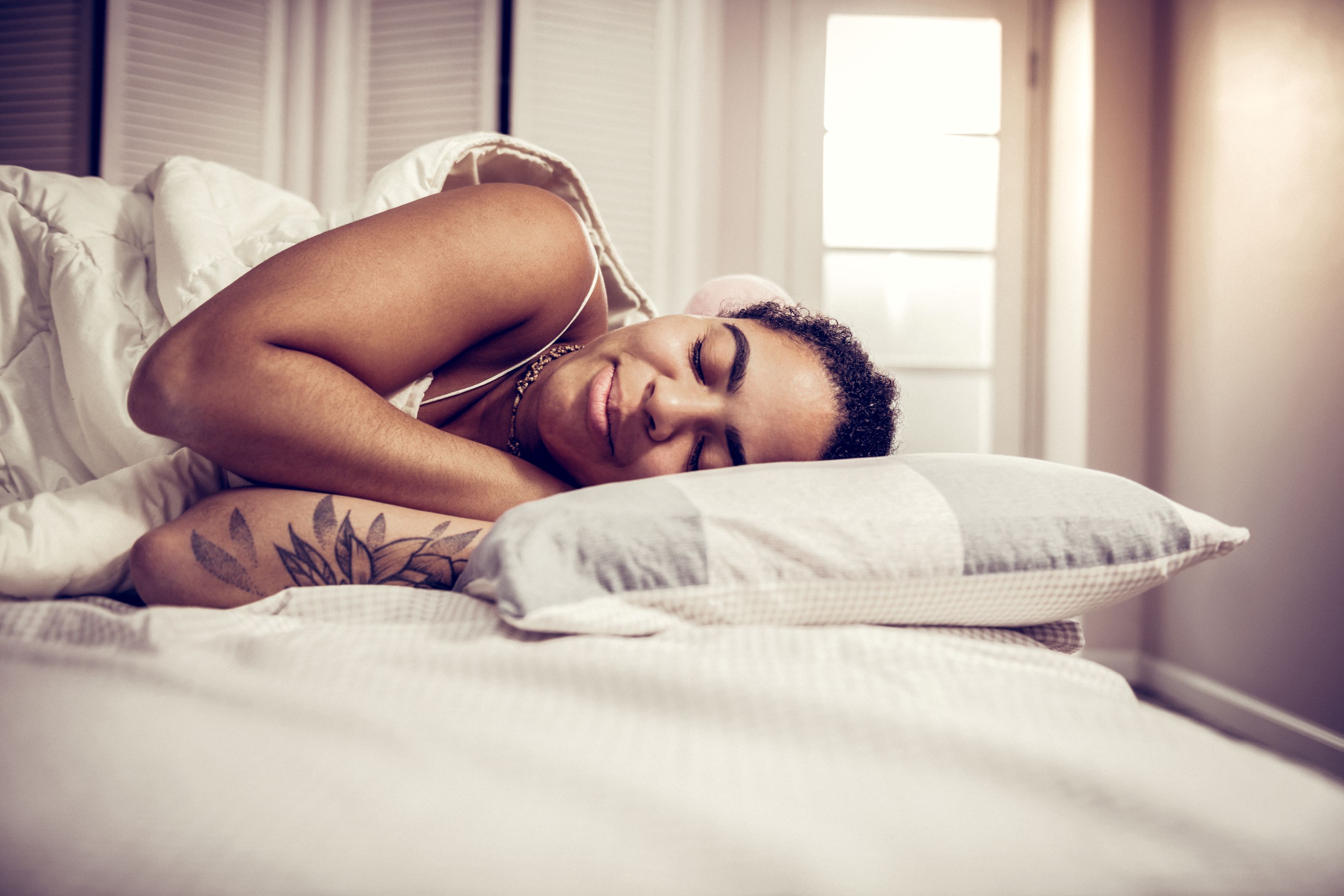Exposure to bright light every day
Circadian rhythm, in simple terms, is the body’s internal clock and natural time. Think of it as your body’s natural time-keeping clock. It is the physical, mental, and behavioral changes we experience over a 24-hour cycle. It can affect your hormones, body, and brain. It can be affected by what we eat, stress, temperature, social environment, physical activity as well as light and dark. Natural bright light or sunlight during the daytime helps to keep the circadian rhythm running smoothly, to enhance daytime energy and quality sleep at night.
Studies have shown that people suffering from insomnia who are exposed to bright light during the day can enjoy improved sleep duration and quality at night.
Reduce exposure to blue light
Exposure to blue light close to bedtime may harm our health, due to it affecting the circadian rhythm of the body. Basically, your brain assumes that it is not time to be sleepy yet, and it reduces the production of melatonin hormone, which enables individuals to have deep and relaxed sleep.
The emission of blue light from electronic devices is considered a no-no in the hours leading up to bedtime. Avoid watching television and using electronic devices such as mobile phones close to bedtime, and consider acquiring filters to help block blue light emissions.
Avoid consuming caffeine
Studies show that caffeine has numerous benefits and is primarily consumed by a large portion of the population. A dose of caffeine can increase energy, focus, and sports performance.
However, not all of the effects of caffeine are positive, and if consumed during the evening it will stimulate the nervous system which could prevent the body from relaxing and prevent you from sleeping. Caffeine can stay in the blood for 6 to 8 hours. As such, it might be best to avoid drinking vast quantities of coffee after 4:00 p.m., especially if you already have trouble sleeping.
Fixed time for sleep and waking up
The circadian rhythm in our body functions in a loop and aligns according to the sunset and sunrise. Keeping consistent times for waking up and going to sleep every day can help to promote restful, good-quality sleep. Sleep hygiene is important, to make your sleep more peaceful, relaxed, and enjoyable, you could invest in light-blocking curtains to make your room darker, or sleep aids to help reduce snoring, wear a sleep mask and ear plugs, or listen to soft background noise to cover other noises that may stimulate your brain and keep you awake.
According to a study, participants with irregular sleep patterns, who prefer to go to bed late at night on weekends, reported poor quality of sleep.
Set your bedroom temperature
Research shows that your body and bedroom temperature are linked and may affect your sleep quality. When it is too hot, you could face difficulty in falling asleep, the same happens when it is too cold. Research suggests that people sleep best when the temperature is on the cooler side, but don’t put your AC on full blast, ensure that your room temperature is suitable to your personal preference.
Summing it up:
A good night’s sleep will help you have a better mood and perform better all day long. When you get up in the morning, you will feel fresh and active, and your outlook will be positively changed.
This article was written for WHN Staccy Minnitty who is an exceptional freelance content writer and blogger, well-known for her expertise on a variety of topics such as health, travel, home improvement, and much more. To learn more about her you can visit her personal site askpreeto.com. Currently, she is doing research to learn more about Lulltape to get better sleep.
As with anything you read on the internet, this article should not be construed as medical advice; please talk to your doctor or primary care provider before changing your wellness routine. This article is not intended to provide a medical diagnosis, recommendation, treatment, or endorsement. These statements have not been evaluated by the Food and Drug Administration.
Opinion Disclaimer: The views and opinions expressed in this article are those of the author and do not necessarily reflect the official policy of WHN/A4M. Any content provided by guest authors is of their own opinion and is not intended to malign any religion, ethic group, club, organization, company, individual, or anyone or anything.
Content may be edited for style and length.
References/Sources/Materials provided by:
https://www.nhlbi.nih.gov/health/sleep/why-sleep-important
https://www.worldhealth.net/news/sleep-anxiety-connection-how-manage-effective-bedtime-routines/
https://www.worldhealth.net/news/science-sleep-how-get-better-sleep-every-night/
https://www.nigms.nih.gov/education/fact-sheets/Pages/circadian-rhythms.aspx
https://www.worldhealth.net/news/turn-blue-light/
https://www.worldhealth.net/news/quest-sleep-struggling-insomnia/
https://www.cdc.gov/sleep/about_sleep/sleep_hygiene.html
https://magazine.medlineplus.gov/article/irregular-sleep-schedules-can-lead-to-bigger-health-issues
https://www.sleepfoundation.org/bedroom-environment/light-and-sleep
*Note: author information updated in 3/20/2024




